Sometimes it seems as though there's a new trendy way to lose or keep off weight every other month. Credible as those diets may be, sometimes the good old-fashioned physician-prescribed advice is all you really need. According to the NHS [1], a healthy diet doesn't require you to guzzle gallons of green tea, drizzle everything in oil, or meticulously track your macros [2] to be effective.
Despite the National Health Service's homogeneous — and much-disputed — stance on BMI, its simple take on healthy eating sounds pretty doable. Read on for 11 easy changes that'll make your diet NHS-approved.
Limit Your Sugar Intake

According to the NHS, limiting your sugar intake [3] to a 30-gram serving every day will reduce your risk of suffering the negative side effects [4] of overindulging in the sweet stuff.
Avoid Fad Diets
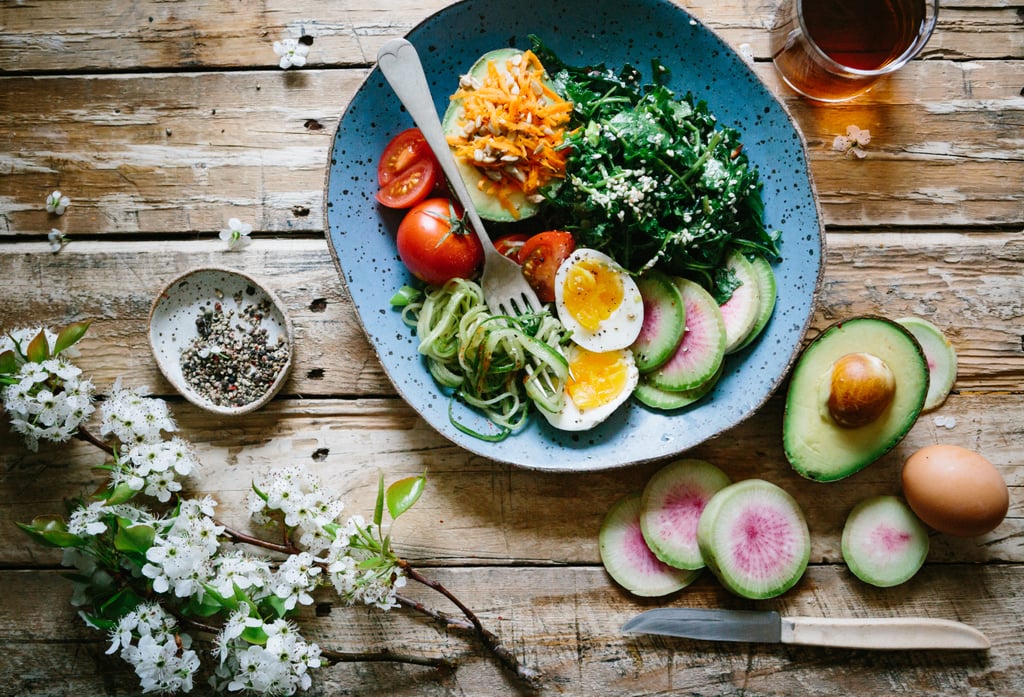
Following strict diets with complicated rules can get tiresome after the initial excitement. The NHS advises you to avoid fad diets [5] and instead focus on eating a balanced diet of healthy wholefoods.
Stop Skipping Breakfast
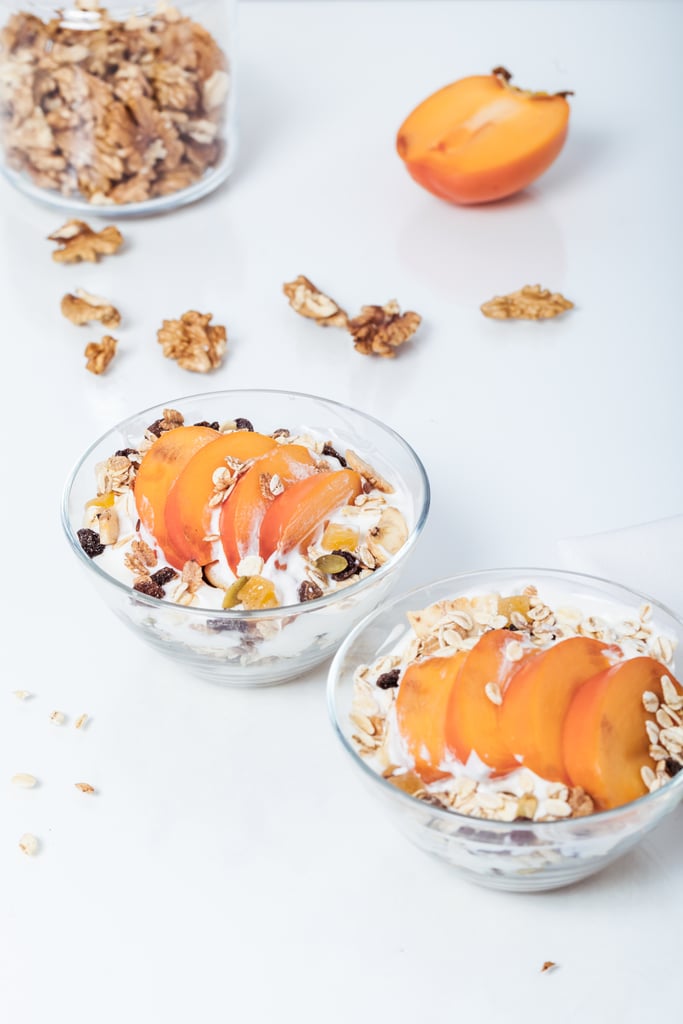
The NHS doesn't want to hear your excuses about always running late or having to wash your hair before work. According to its advice, breakfast is a must [6].
Starting your day with a healthy meal will motivate you to continue making healthy choices, but if the thought of a sit-down breakfast fills you with dread, start with a small piece of fruit or a healthy granola bar [7] that won't disrupt your routine.
Eat Your Fibre
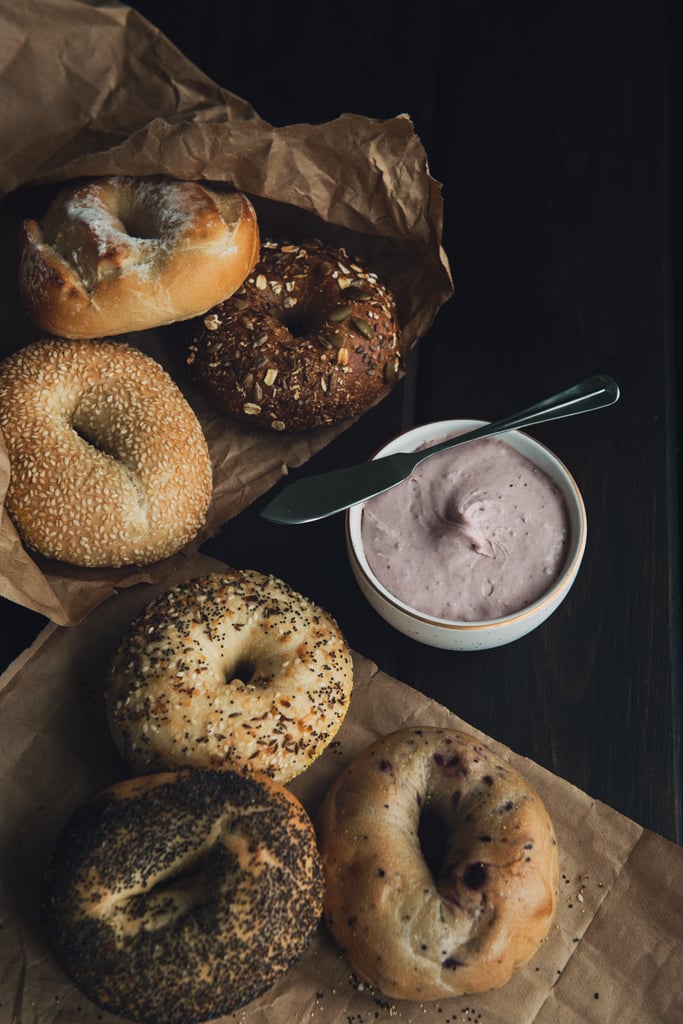
As the NHS doesn't recommend cutting out entire food groups, carbs are definitely part of its healthy diet. According to the guidelines [8], "starchy foods such as potatoes, bread, rice, pasta and cereals should make up just over a third" of your overall diet, and you're encouraged to pick whole-grain options whenever possible, as they're likely to contain more fibre [9].
Eat Regularly
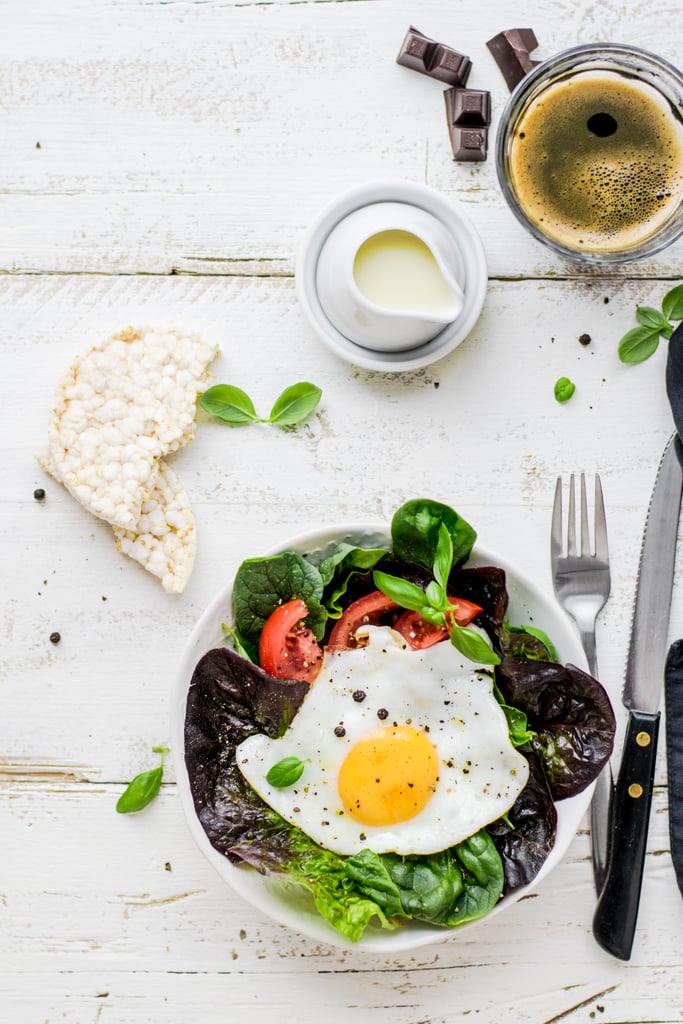
Intermittent fasting [10] may well be a popular and effective weight-loss tool. However, if you can't handle eating only two or three meals a day, the NHS suggests eating small, frequent meals as one of its 12 tenets of a healthy diet [11]. Eating at regular intervals ensures your body is fuelled and lessens the urge to snack.
Stay Away From Saturated Fats

In the argument over good fats and bad fats, saturated fats are often placed in the latter category. Many who follow the ketogenic diet [12] have benefited greatly from eating more of both saturated and unsaturated fats, but the NHS suggests keeping your intake between 20 and 30 grams [13] daily, because it can cause heart disease and high cholesterol.
Common culprits you should be wary of when cutting down your saturated fat intake include foods such as coconut milk, bacon, cheese, coconut oil, ghee, and butter.
Be Prepared When Eating Out
Although many people save their restaurant visits for "cheat days", if you follow the NHS's healthy eating advice, you can still eat out even when you don't have a day off.
The key to eating out and still being healthy involves simple tips [14] such as swapping creamy desserts for plain fruit and asking for sauces to be served on the side rather than on the dish.
Eat Your Five a Day
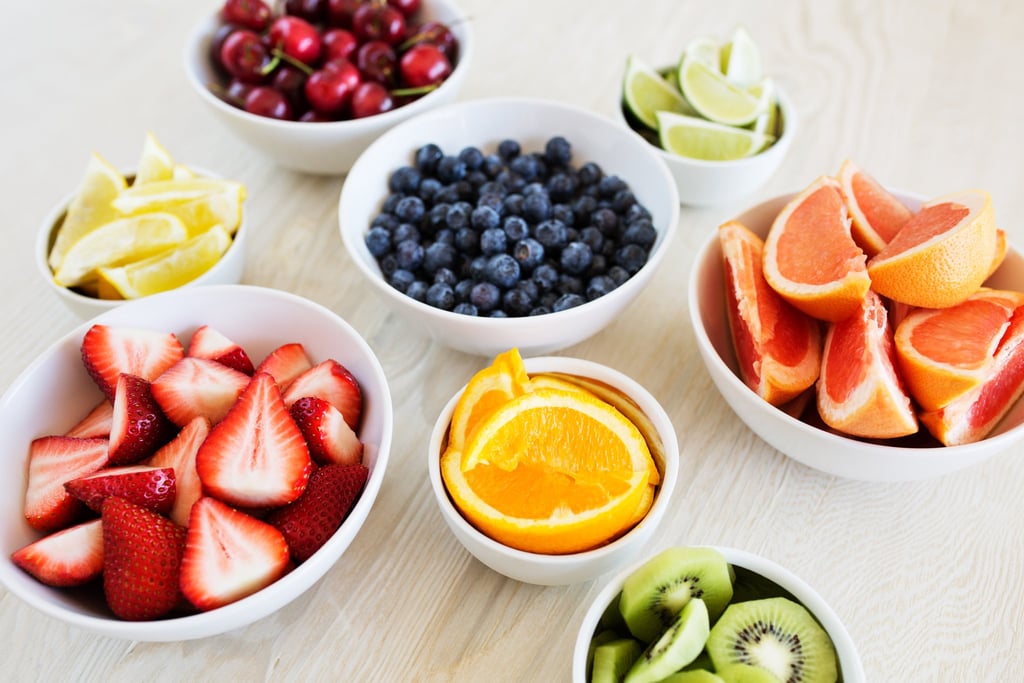
The NHS's catchy slogan is designed to encourage people to enrich their daily diets with five pieces of fibrous fruit and veg [15]. According to the guidelines, an 80-gram serving of fresh fruit or veg qualifies as a portion.
Fruit can be full of sugar, though, so although dried fruit, smoothies, and juices can count toward your five a day, keep to the guidelines [16] to avoid overdoing it.
Easy on the Salt
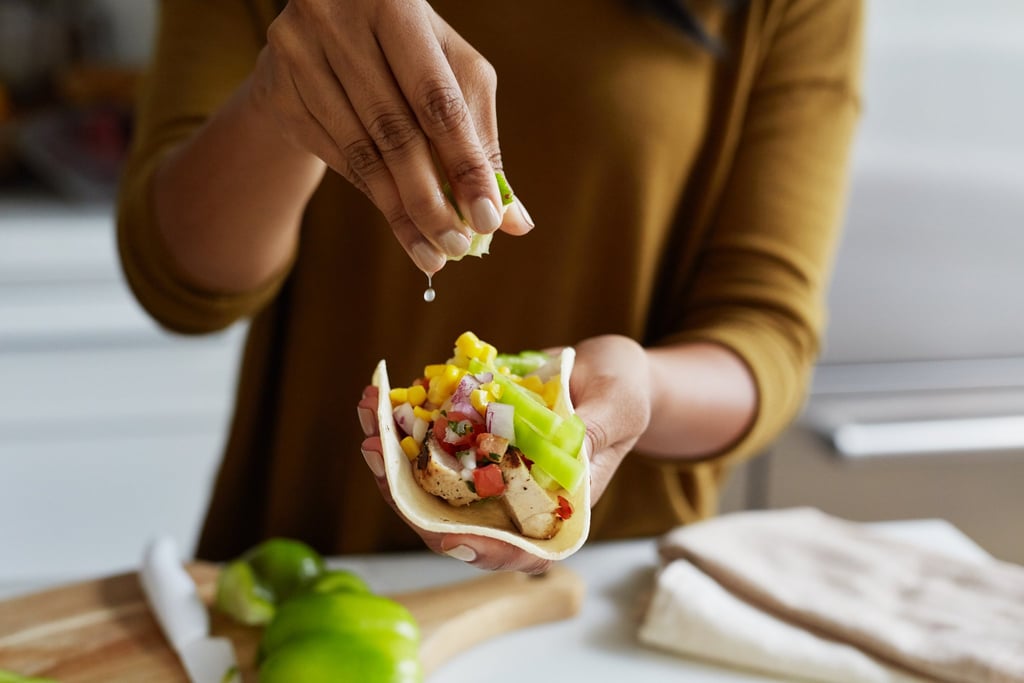
Eating too much salt can affect the health of your heart by causing things such as high blood pressure and stiffening of the blood vessels. The NHS suggests that lowering your salt intake [17] is one of the most important aspects of maintaining a healthy diet.
Limiting your salt intake doesn't mean confining your diet to bland, tasteless foods; instead, think of it as a chance to get creative with how you season your food [18].
Eat More Fish
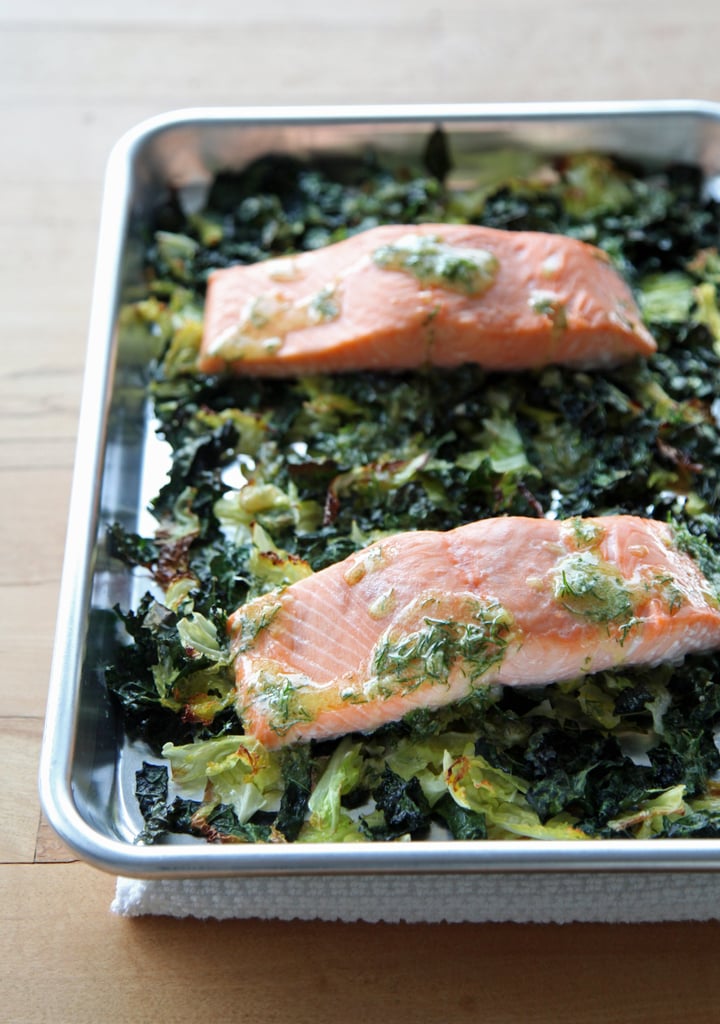
There's no official line on how much or how little fish you should be eating, but the NHS's recommended amount [19] is upwards of two portions a week. Adding foods like salmon and tuna to your menu is a great way of adding healthy fats to your diet [20] and bolstering your protein intake.
12 Simple Rules
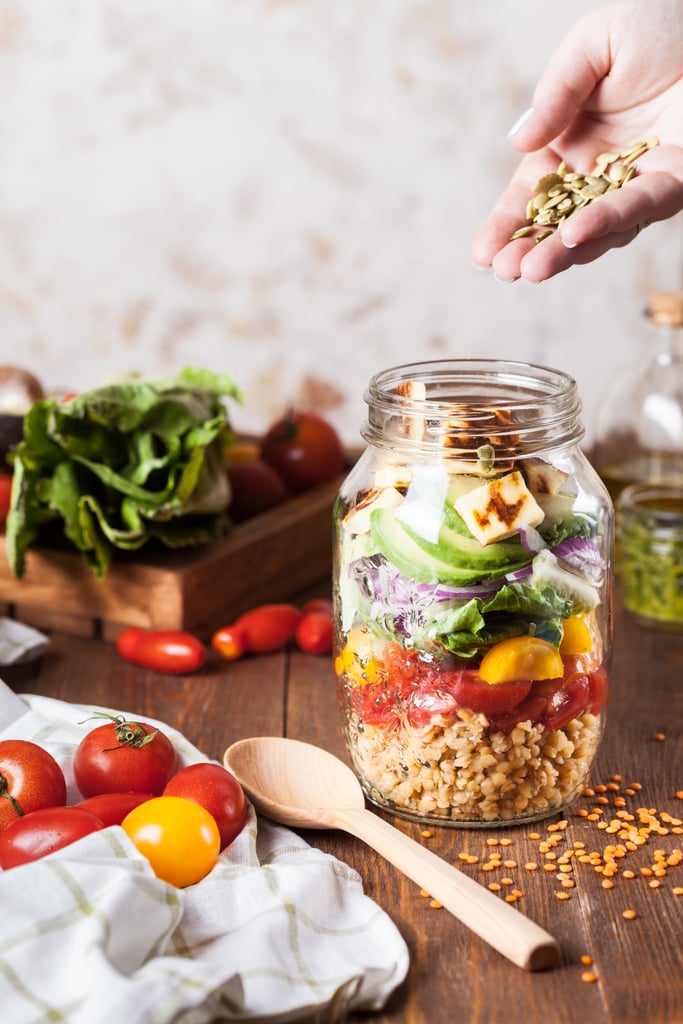
The NHS's guide to healthy eating and weight loss is based on 12 core tips [21], such as planning your meals and cutting down on alcohol. These don't all have to be implemented at once; making the changes gradually will make it easier for them to become habit.